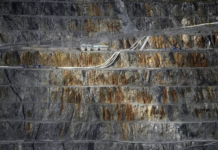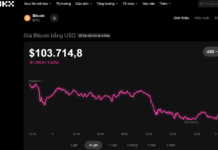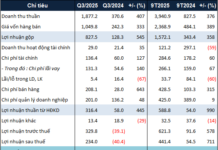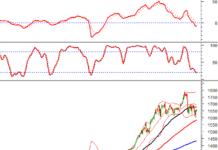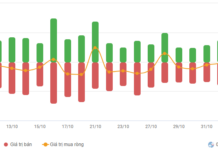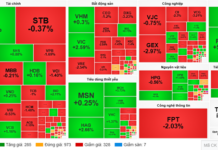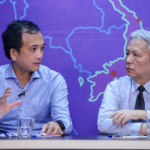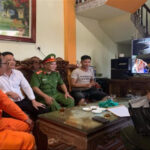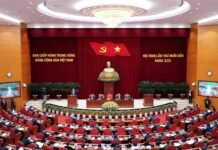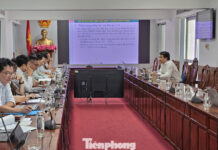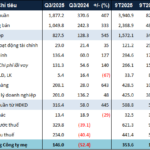Vietnam Electricity (EVN) has recently submitted a report to the Ministry of Industry and Trade regarding challenges in implementing the Circular detailing and guiding the Law on Electricity.
Based on Decree 58/2025/ND-CP, EVN emphasizes that organizations, individuals, and households developing rooftop solar power systems for self-consumption, regardless of whether they are connected to the national power grid or not, must notify the Department of Industry and Trade, power companies, and local construction and fire prevention authorities.
This measure aims to facilitate the management, monitoring, and guidance for the installation of rooftop solar power systems in compliance with regulations.
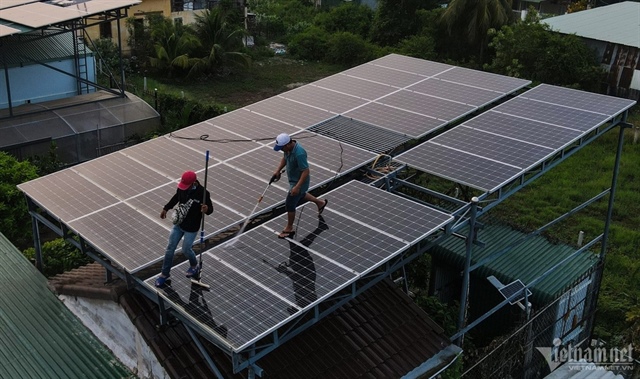
EVN proposes fines for households installing rooftop solar power systems without registration. Image: TL |
However, organizations, particularly households installing rooftop solar systems, have not been proactive in submitting the required notifications or cooperating with power companies by providing the necessary documentation.
In reality, there have been cases where investors installed rooftop solar power systems without notifying or registering with the managing authorities.
EVN argues that without clear definitions of responsibilities and obligations in Article 37, it would be challenging to identify violations. This ambiguity leads to confusion in enforcement under the Law on Handling of Administrative Violations and the Decree on sanctions for violations in the electricity sector.
Therefore, the corporation proposes considering the addition of a regulation: organizations and individuals developing rooftop solar power systems for self-consumption who fail to notify or register will be subject to administrative fines depending on the severity of the violation.
“This regulation aims to ensure that the notification/registration obligation is legally binding, filling the gap in enforcement measures, enhancing state management effectiveness, and complying with the Law on Handling of Administrative Violations,” EVN emphasized.
Additionally, the Ministry of Industry and Trade should consider including provisions to guide the implementation of solar power systems installed on irrigation canals, reservoir dams, or hydroelectric dams.
In its report to the Ministry, EVN also highlighted that since 2020, approximately 1,300 MWp of rooftop solar power capacity has been installed without selling electricity to EVN. With the electricity price at around 1,000 VND/kWh, selling to the corporation is no longer attractive to investors, and these systems are primarily built for self-consumption.
International experience shows that for rooftop solar power systems, there is no requirement for anti-feedback devices, only power output control devices. Therefore, mandating the installation of anti-feedback devices leads to unnecessary waste, as systems with a capacity of 100 kW and above are already equipped with monitoring, control, and connectivity to the dispatch level.
Moreover, rooftop solar power systems for self-consumption have minimal impact on the operation of the national power grid, and dispatch control is entirely achievable for sources with a capacity of 100 kW and above.
Given these facts, EVN proposes that the Ministry of Industry and Trade consider amending point b, clause 2, Article 5 to state: “Sources of self-produced and self-consumed electricity from renewable and new energy sources connected at the low voltage level; except for rooftop solar power systems for self-consumption connected to the national power grid at the medium voltage level but not selling electricity to the grid.”
Tam An
– 09:50 11/09/2025
“EVN Takes a ‘Hit’ Rather Than a Loss”
As of late 2023, EVN faced a significant deficit in its finances, according to Trinh Quoc Vu, Deputy Director of the Electricity Authority under the Ministry of Industry and Trade. This deficit, commonly referred to as cumulative losses, amounted to a staggering 50,000 billion VND, excluding exchange rate differences. This discrepancy between revenue and expenses will inevitably require EVN to accurately reflect these costs in electricity prices.
Support Citizens to Embrace Apps and Smart Meters for Enhanced Monitoring
“Industry leaders from various power corporations and the Vietnam Electricity Group (EVN) have expressed their support for residents taking charge of their electricity bills. They encourage individuals to install their own meters and utilize apps to actively monitor and manage their electricity consumption and costs.”
Unraveling EVN’s Colossal Loss: A Request for Transparency on the $44 Billion Deficit Impacting Electricity Rates
“The feedback from various ministries and associations on Decree 72/2025, crafted by the Ministry of Industry and Trade, proposes supplementary regulations regarding costs not factored into electricity prices. This feedback is a crucial step in shaping the decree and ensuring a comprehensive approach to electricity pricing.”
Two New ‘Red Book’ Regulations Bring Significant Benefits to Citizens
The new Decree No. 226, effective from August 15, 2025, brings about significant changes to land use certificate (red book) issuance regulations. The decree introduces streamlined administrative procedures and extends the period for land use fee credit. These amendments are designed to simplify the process of obtaining a land use certificate and provide greater flexibility for landowners.



